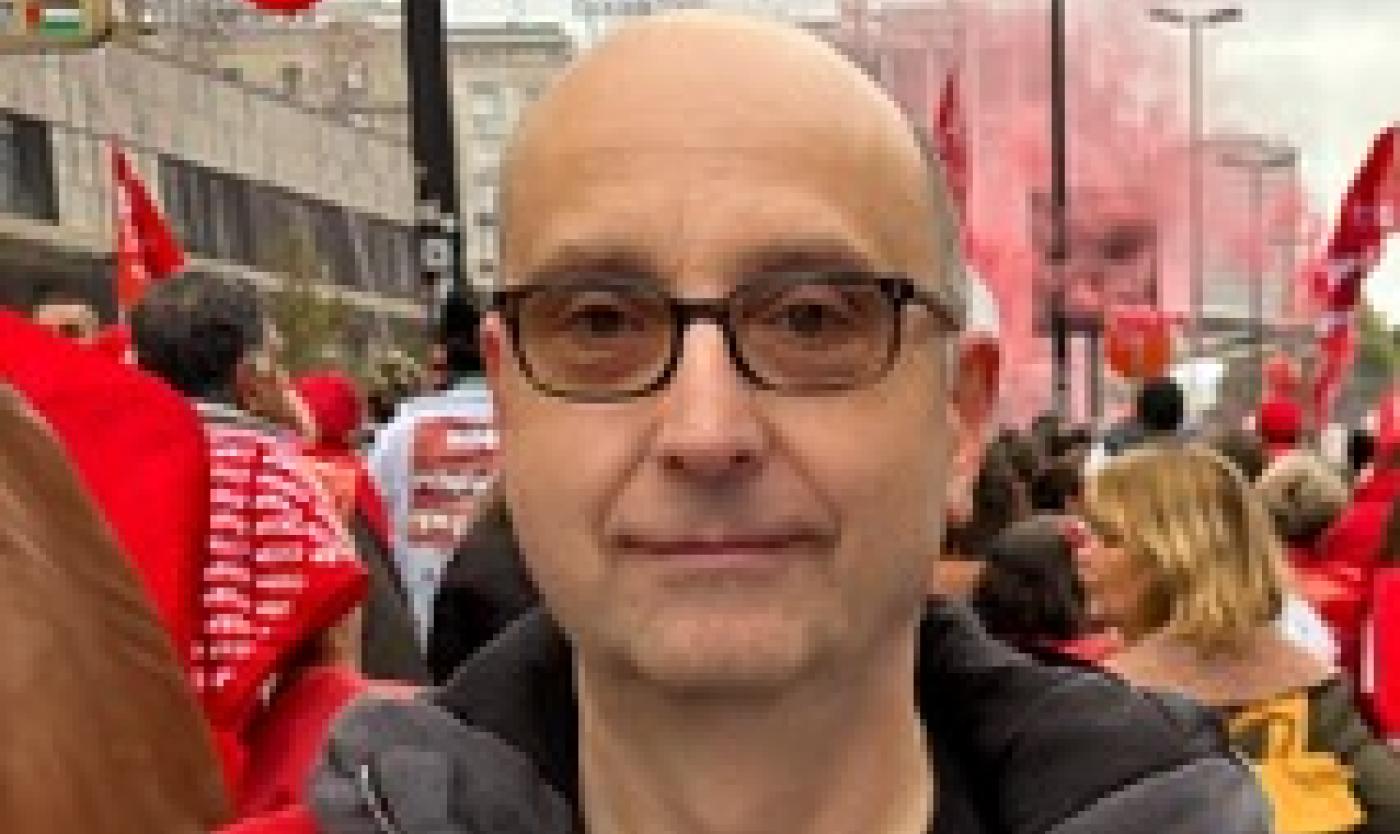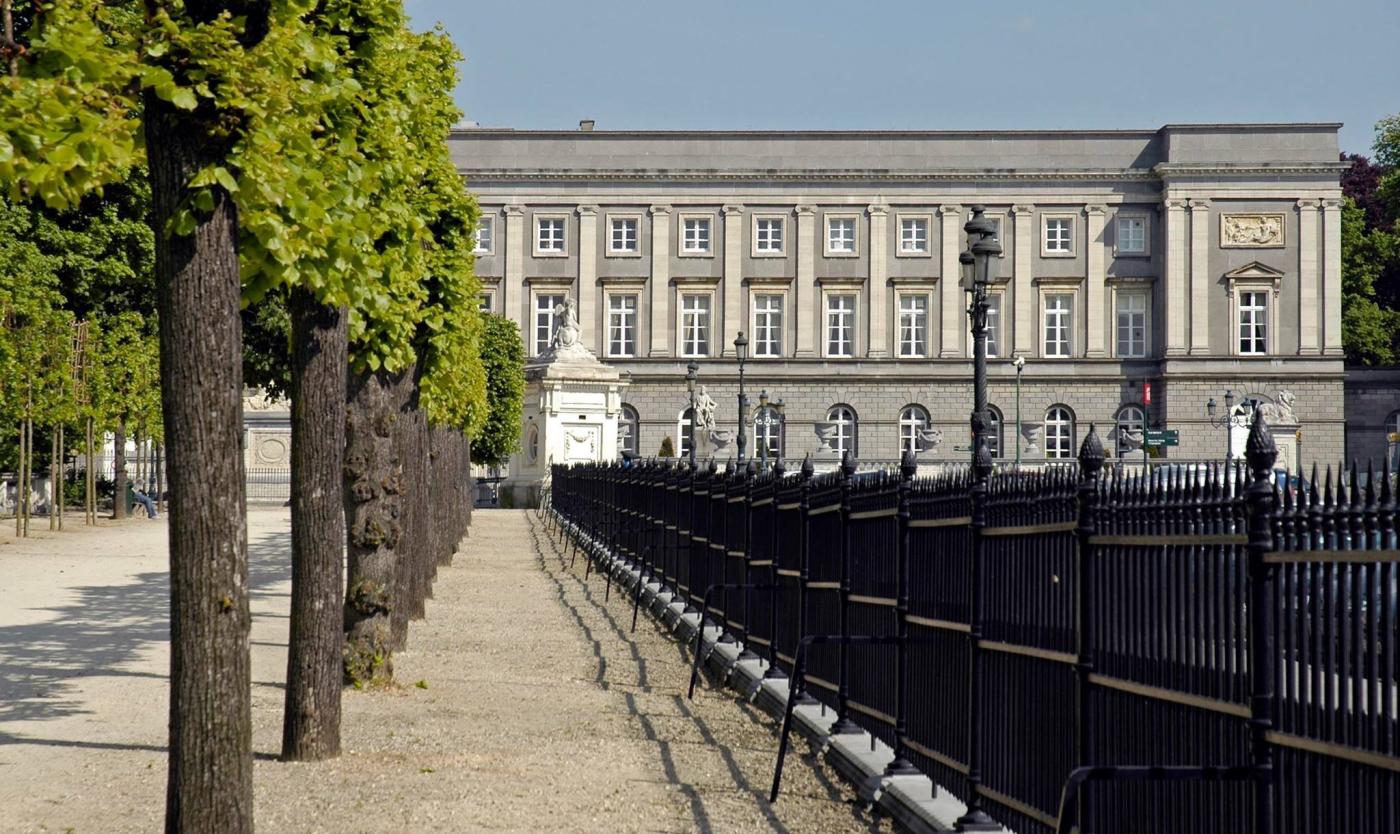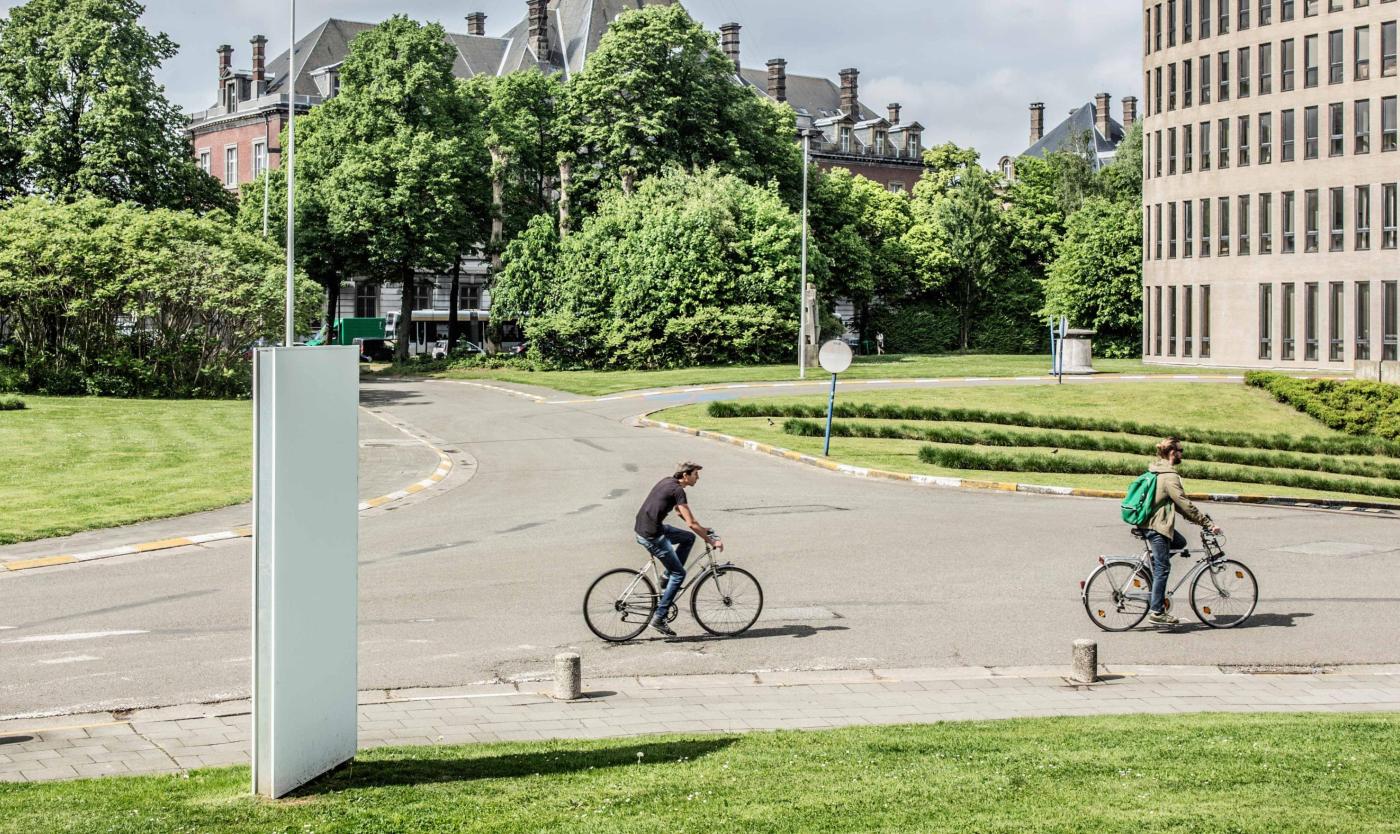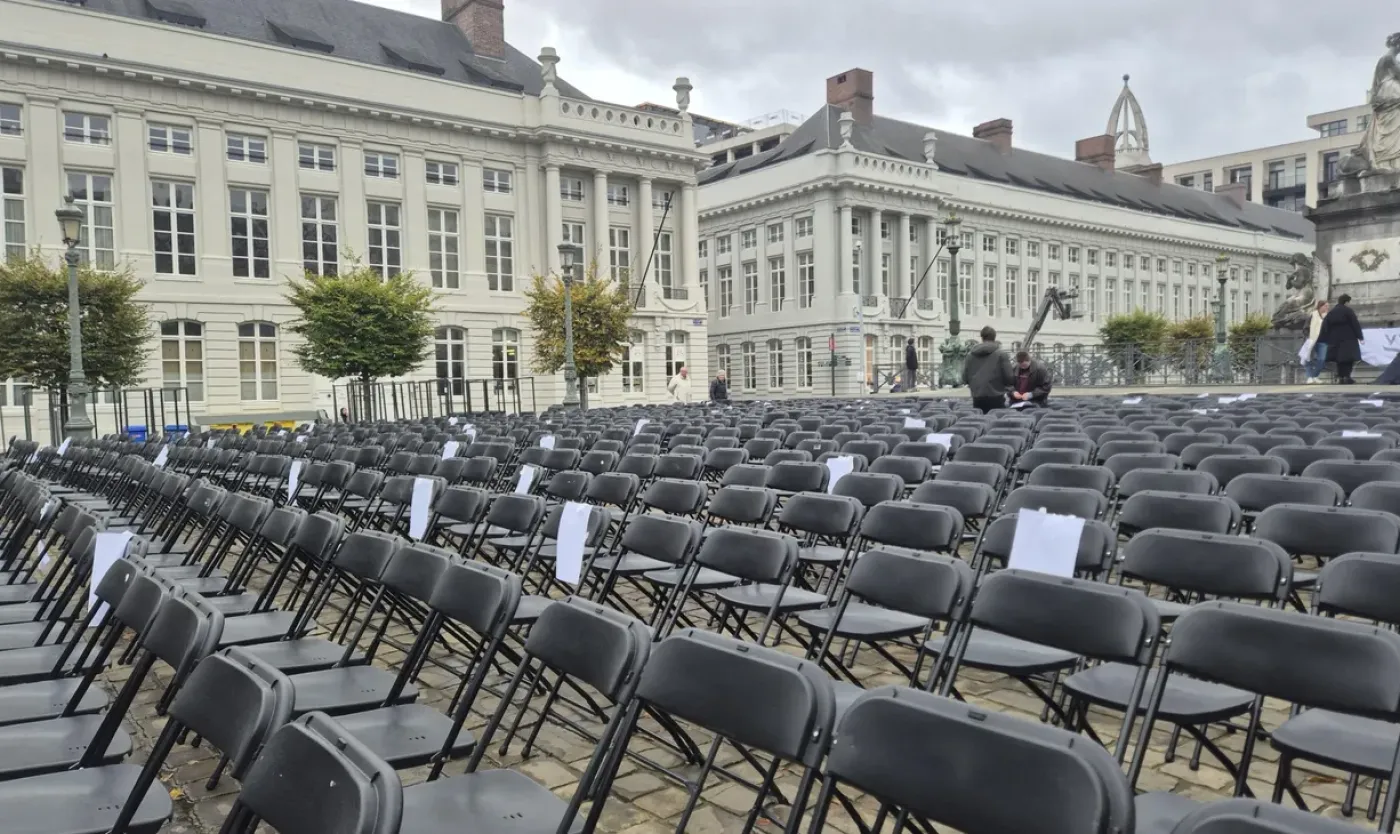The planned budget cuts by various governments are causing growing concern in Flemish higher education. At the Vrije Universiteit Brussel (VUB), staff and students fear that their institution, as the only Flemish university in Brussels, will be disproportionately affected, with the risk of job losses and reduced access to education. That is why they will take to the streets on 11 December to send a strong message to the government: “Flanders, invest in higher education. Including in Brussels.”
The driving forces behind the initiative are trade union representatives Jo Coulier (ABVV) and Tim Van de Voorde (VSOA & ACLVB), together with Student Council President Leon Bauweraerts. They explain what motivates them, how the budget cuts affect staff and students, and what they expect from the government. Their message is crystal clear: “We don’t get five chances to make our statement. 11 December is the date that counts.”
Why are staff and students taking to the streets on 11 December?
Jo: “The Flemish and federal governments have announced various budget cuts to higher education that could cost the VUB a great deal of money. Cutting the Brussels funds will cost five million euros, reducing the financing for non-EEA students another five million, and subsidies for the Institute for European Studies (IES) 2.2 million. In addition, there are federal cuts to science policy, such as abolishing the tax exemption for the VUB, worth 6.2 million euros, as well as yet unknown consequences for development cooperation and Fed Twin. The latter is a federal research programme for sustainable cooperation between the 10 Federal Scientific Institutions (FWI), which fall under Federal Science Policy (BELSPO), and the eleven Belgian universities.”
“If eighty per cent of our expenditure goes to staff, it’s clear that this enormous loss cannot be offset by simply turning the heating down by two degrees. Jobs will be lost.”
Tim: “The education we offer is coming under pressure: programmes will disappear, quality will decline, support will become more limited and students will soon be sitting in larger groups. That way we lose the unique added value of the VUB.”
Leon: “On top of that, the planned cuts of 34 million euros to study grants will put more than 1,000 students in difficulty. There is no transitional measure, and the VUB’s internal financial support cannot absorb this, meaning some students will be forced to stop their studies after four years. Moreover, an increase of 150 euros in tuition fees is being considered to compensate for the cuts. This creates a dangerous trend: future cuts risk always being passed on to students.”

Jo Coulier, Trade Union Representative, General Union of Public Services (ABVV) since 1995
“Universities and university colleges educate future generations and help build the knowledge economy. That deserves respect and the necessary resources.”
Did you see this coming?
Jo: “The VUB is a growing university. After twenty years of hard work, our student numbers and research output have grown significantly, while the staff numbers have not kept pace. We are now teaching almost twice as many students with the same—or even fewer—professors. This ‘reward’ after two decades of dedication feels like a slap in the face for many. Our commitment is not being respected.”
Leon: “Several institutions, such as the IES, previously received positive signals from the Flemish government that they were doing good work. And now they are being completely stripped of their subsidies.”
Tim: “This is disastrous for our reputation as an internationally oriented university. What will happen to our international networks? And can we still attract strong profiles from abroad? Apparently, none of that matters to the policymakers.”
What is your message to the government?
Jo: “The cuts are unacceptable for any institution. The VUB has 25% international students and is located in the capital of Europe. We need international profiles for the labour market. Flanders, stop withdrawing and refocus on Europe and the world.”
Tim: “We also disagree with Flanders’ attitude towards Brussels. The Flemish government’s strategy is unclear, but one thing is certain: Brussels is being hit disproportionately hard.”
Leon: “If you look under the hood of the savings plan, it’s clear that little thought has been given to implementation. Of the 49 million euros that must be cut from Flemish higher education, 14 million will fall on the VUB. It’s evident that no consideration was given to which institutions would be hardest hit and whether this is even responsible.”

Tim Van de Voorde, Trade Union Representative, Free Trade Union for the Public Service (VSOA) and General Confederation of Liberal Trade Unions of Belgium (ACLVB) since 2012
“The VUB is known as an advocate for the democratization and accessibility of higher education. For us, talent and competence are central—not background or financial means. The announced budget cuts run completely counter to this core value.”
Is this, for example, about the study grants?
Leon: “Yes, there has also been no thought given to implementation. How they will be awarded in the future is completely unclear. The exceptions to the 54-credit rule are so broadly defined that almost anything could fall under them, while fewer grants will actually be issued. If students have to appeal, it could create a situation like with the Council for Disputes over Study Progress Decisions, where the current average waiting time is already eight months. Students who rely on a grant are therefore put in a particularly vulnerable position.”
“Over the past few years, a lot has been invested to automate and accelerate student funding. Without clear transitional measures in this reform, it will create chaos.”
Tim: “You should also remember that the VUB holds a unique position in the educational landscape. Many young people studying here come from disadvantaged neighbourhoods, such as the Canal Zone. In my student days, the university was known as an advocate for the democratization and accessibility of higher education. Tuition fees were kept as low as possible, and courses were free in the first year. All of this aimed to give young people from socio-culturally vulnerable backgrounds the chance to continue studying and climb the social ladder. For us, talent and competence are central—not background or financial means. The announced budget cuts run completely counter to this core value.”
What does this measure mean for future students?
Leon: “Future students are already wondering whether they can afford their studies, and some are considering loans or debt. This dangerously brings us closer to a system like in the United States.
Students who normally cannot take 54 credits because they need to work extra will be hardest hit. This group, often from financially vulnerable backgrounds, will now lose access to grants. On top of that, there are age limits: after 30, you can no longer receive a grant.
All of this will significantly limit access to higher education. You have to ask whether this is wise, especially in sectors with a severe shortage of highly educated professionals, such as healthcare, ICT, cybersecurity, or the judicial system in Brussels. It does not solve the current problems and could even worsen future shortages.”

Leon Bauweraerts, Chair of the Student Council since the 2025–2026 academic year
“Future students are already wondering whether they can afford their studies, and some are considering loans or debt. This dangerously brings us close to a system like in the United States.”
Who is taking the initiative for the demonstration on 11 December?
Leon: “The demonstration is not organised solely by the VUB Student Council. Many other student councils across Flanders, such as Antwerp and Ghent, have already announced that they will attend in large numbers to support us and show their solidarity.”
Jo: “For staff, the three trade unions at the VUB are taking the initiative, with delegations from other universities and university colleges joining in. Partly because we have experience with taking action, but also because, as critical and independent thinkers, we want to challenge the resignation that sometimes exists: ‘there’s nothing we can do about it.’ We don’t wait until decisions have already been made. We will stand on the barricades if necessary—that’s in our DNA. Hopefully, this will be followed in 2026 by the other Flemish university cities.”
What has been the reaction of VUB staff and students to your initiative?
Jo: “We handed out flyers in the Resto to make our action known within the VUB community. The response has been largely positive, with many people indicating that they will join the demonstration. That is important: staff and students need to come out onto the streets because they are convinced that the VUB is worth fighting for, and that higher education in Brussels is worth continuing to invest in.”
Leon: “We are also informing students about what they can expect. Their jaws literally drop when they hear what is happening to higher education in general and to study grants, especially for the most vulnerable students. The right to free speech and protest is clearly alive among students, and the willingness to join the demonstration is high.”
What do you hope to achieve with your action?
Jo: “We are taking to the streets to generate media attention and confront the governments with the consequences of their decisions. Universities and university colleges work incredibly hard: we educate future generations and help build the knowledge economy. That deserves respect and the necessary resources. With this action, we want to make it clear that budget cuts undermine higher education.”
Leon: “We also want to highlight the shortcomings in the implementation of the measures.”
Tim: “Transitional measures are needed to retain teaching capacity and allow the VUB to continue using its innovative strength. Only then can the university remain a growth engine for the economy.”
Do you have a message for staff and students?
Tim: “Inform yourself. Among both older and younger academics, there is sometimes the thought: ‘It will blow over’ or ‘It won’t affect me.’ Those starting out often do not realise the impact certain measures, like pensions, can have over an entire career. That is why training sessions and discussions are important, so everyone fully understands the consequences.”
Jo: “Everyone is welcome, with their individuality and diversity. We need to be many and clearly show the diversity present. We don’t get five chances to make our statement: 11 December is the date that matters this year.”
The Demonstration: Where, When, How?
📍 Meeting Point:
- On 11 December at 12:00, we will gather in front of the Braem Building.
- Keep the public road clear until around 12:15 so that everyone can join safely.
🚶 March:
- From the Braem Building, we will walk behind the banner via Pleinlaan and cross General Jacqueslaan.
- We continue along Kroonlaan using the bus and right-hand lane (public transport will use the left-hand lane).
- Via Idalie, we head towards Luxembourg Square.
🎤 At Luxembourg Square:
- Take the grass and plaza area on the left, where speakers on the stage will address attendees.
🏠 Return to Campus or Home:
- Possibly via Luxembourg station.
- Do not gather on the square between the station and the European institutions; police in full gear will be present there in accordance with EU protocol.


